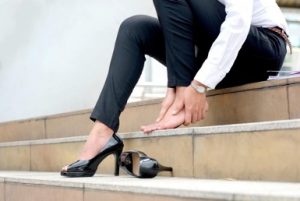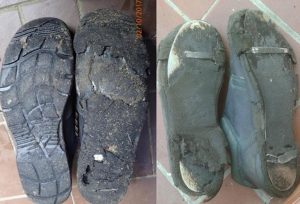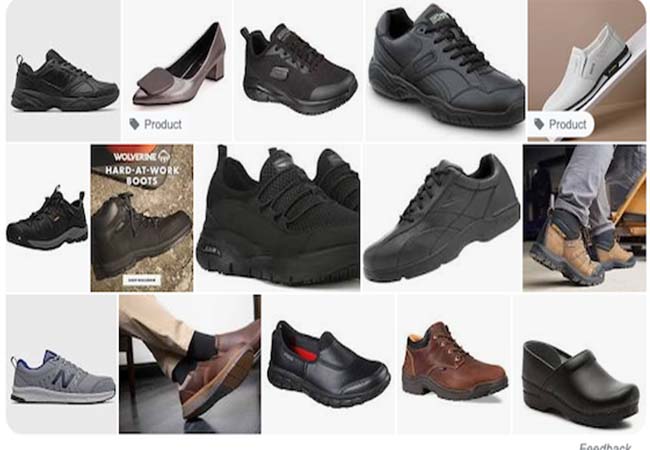When it comes to replacing your work shoes or any of your stuff, there is no fixed timing or duration.
You alone reserve the right to discard and replace them whenever you like. However, different factors influence how long people might have to use their pair of work boots and: how often they replace them. Some of them are:
Finance
They say when there is a will, there is a way. But, when it comes to having to change one’s work shoes, it goes beyond just having the will, the finance has to be there to match. Sometimes people might see the need to get a new pair of work shoes but have to wait for a while longer to get it because of a lack of needed funds.
Quality
Work shoes range in price so it is quite understandable that they come with various quality levels too. This consequently means that the durability of each work shoe would depend on its quality level, which would then most likely be a reflection of its price. The implication of this is that Mr. A might have to wear his work shoes for a while longer than Mr. B because of the disparity in durability levels.
Repair culture
While some people might decide to discard and replace their work shoes at the slightest damage or after one or two repairs, others might rather choose to keep repairing them for as long as possible. It costs a healthy sum to get a decent pair of work shoes and some people might not be ready to add that to their immediate budget.
Just as we earlier mentioned, the durability levels of work shoes are highly dependent on their price range. This makes it impossible to give a general time frame for work shoe change because, while some high-end shoe brands might last close to a decade, the average work shoes have a lifespan ranging from 3 – 5 years.
However, below are a couple of tell-tale signs to know when to change your work shoes.
Discomfort
Working for a living is enough hassle. And what the average worker craves is working conditions as comfortable as possible to be able to be their best productive self. The last thing anyone needs is a nagging ankle pain to add to the more than enough stress they have staring right back at them on their work plate.

If the nature of your job requires you to stay on your feet for prolonged hours, then it will be advisable for you to always ensure that your work shoes are a perfect fit. Wearing tight-fitted work shoes for long hours would cause you discomfort leading to foot sores. This would impact your productivity level negatively as it might dampen your mood at work.
The moment those work shoes are getting too tight for comfort, that’s your cue to go replace them.
Worn-out soles

It is important to constantly check the condition of your outsoles when cleaning your work shoes daily. Wearing work boots with worn outsoles can cause you to slip and fall while working as the imbalance it causes under your shoes might impact the way you move around.
Just like your car brakes on a wet, marshy road, the grip on your work shoe outsoles helps to keep you firm on the ground and serves as an extra means of mobility support.
Wearing work shoes with unlevel soles would also affect your balance when you stand or walk, which could cause pain in your ankles after a while. This could take a toll on your production level.
Weakened waterproof feature
Some shoes, especially work boots, come with special features like; waterproofing. This is important if the nature of your work has you going out on the fields or you have to work outdoors. The unpredictable nature of the fields might have you working in a marshy or wet environment.

This makes having a waterproofed work shoe an expedient option as it keeps you from having to deal with the stress and discomfort that come with working with a wet insole. Moving around in wet shoes might cause foot irritations due to the mixture of moisture with dirt in your shoes.
Some working conditions might also expose you to harmful liquid substances and chemicals which makes the waterproof feature highly imperative for foot protection.
Impact damage
Working in high-risk environments like construction sites, workshops, warehouses, quarries, etc, means you stand a very high chance of having sizeable objects falling on your shoes. There is also a very high chance of you walking into them during working daily.
Daily exposure to different forms of impact hazards might have you changing your work shoes more often than usual as this could cause damage to them. Having to wear shoes with weak protection in a high-risk zone can put your foot in danger. This makes it important to change your work shoes as soon as the damage is enough to comprise the feet.
Wear and tear
Nothing lasts forever. From the most durable to the cheapest of them all, every shoe will surely fall victim to wear and tear. Eventually, each scratch, tear, prick, dent and all would take its toll, and even the best of them all would degenerate. It is only a matter of time.
Degeneration automatically calls time on the usage of every work shoe.
Conclusion
As earlier mentioned, different factors determine how long it takes every user to replace their work shoes. While some people have the means to replace theirs at the slightest dent, others aren’t that privileged. This article is not aimed at judging anyone for wearing their shoes for longer periods. If you have to ‘recycle’ that shoe for as long as necessary, please do – only ensure that the integrity of your feet or health is not compromised.


